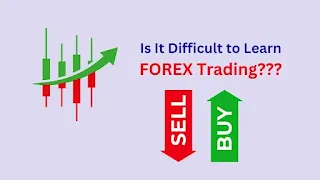The Global Money Maze: A Trader's Guide to What Makes Currencies Rise and Fall
My name is Mukesh Kumar, and I’ve been a Forex trader for over a decade. When I first started, I was just like you. I would look at the charts and see the lines going up and down, and I had no idea why. I remember my first trade very clearly.
I bought some Euros because I heard on the news that Europe's economy was doing well. The next day, the value of the Euro dropped, and I lost money. I was so confused. What did I miss? I missed the economic factors that can change the Forex Trading market!
Suggested articles for you:
That’s when I realised that I needed to understand the "why" behind the price movements to be a successful Forex trader. I discovered that the Forex market is like a giant ocean, and the currents that move the water are the economic factors of different countries. If you can understand these currents, you can navigate the ocean and find your way to profitable trades.
In this article, I’m going to share with you the top economic factors that affect the Forex market. We’ll explore these ideas in a simple, storytelling way, so even if you’re completely new to this, you’ll be able to understand. Think of me as your guide on this exciting journey into the world of currencies.
Reference Articles for You to Read >>>
The Top Economic Factors that Affect the Forex Trading Market Worldwide
1) The King of the Hill: Interest Rates
Imagine you have two piggy banks. One is at your friend’s house. He tells you that for every dollar you keep in his piggy bank for a year, he’ll give you an extra 5 cents. The other piggy bank is at your cousin’s house.
She says she’ll give you an extra 10 cents for every dollar you keep with her for a year. Where would you want to put your money? Would you think about the economic factors causing the difference in the money here?
You won't think much, right? Most likely, you’d choose your cousin’s house because you’ll earn more. In the world of Forex, interest rates work in a very similar way.
An interest rate is the reward you get for saving your money in a country's bank. Central banks, which are like the main banks of a country, set these interest rates. When a country has a high interest rate, people from all over the world want to save their money there to get a better return.
Frequently Asked Questions:
What factors affect the Forex Trading market worldwide?
Which economic factor affects the Forex Trading market the most?
3 factors that affect the demand for foreign currency
How does the Forex Trading market affect the economy?
Related Article:
What is a Central Bank? What is its significance?
Why do some banks in some specific countries offer higher interest rates than others?
To save their money in that country, they first need to buy the country’s currency. This high demand for the currency makes its value go up.
Let's look at a simple example:
So, when you hear on the news that a country's central bank is planning to increase its interest rates, you can expect its currency to become stronger.
2) The Sneaky Thief: Inflation
Have you ever noticed how the price of your favourite chocolate bar keeps increasing over the years? Maybe a few years ago it cost $1, and now it costs $1.50. This is due to a phenomenon known as inflation.
Inflation is like a sneaky thief that slowly eats away at the value of your money. If the price of things goes up, it means your money can buy less than it could before. So, in our chocolate bar example, your $1 can’t buy a full chocolate bar anymore. The value of your money has gone down. Don't you think there are economic factors that affect this price change?
In the Forex market, traders keep a close eye on inflation. A country with high inflation will see the value of its currency decrease. Why? Because if the money in that country is losing its value, people will not want to hold it. They will sell that currency and buy a currency from a country with lower inflation.
Related Articles:
How Does Inflation Affect Exchange rates between two nations?
Understand Inflation, Interest Rates, and Exchange Rates in Detail
For instance, if the inflation in Country A is 10% and in Country B is only 2%, investors would rather hold the currency of Country B because it is holding its value better.
3) The Country's Report Card: Gross Domestic Product (GDP)
Think of a country's economy like a giant shop. This shop produces and sells all sorts of things, from cars and computers to food and clothes. The Gross Domestic Product, or GDP, is the total value of everything that the shop produces and sells in a year.
A country's GDP is like its report card. A high GDP means the country's economy is doing well. It's producing and selling a wide range of goods and services, and people are earning money. A low GDP, on the other hand, means the economy is not doing so well.
How does this affect the Forex market? A country with a strong and growing GDP will have a strong currency. This is because a healthy economy attracts investors. People want to invest their money in a country that is doing well, so they buy its currency, which pushes its value up.
Related Article:
What is GDP? How Does a Country’s GDP Affect the Forex Market?
Here’s a simple way to look at it:
So, when a country releases its GDP report, Forex traders pay close attention. A better-than-expected GDP report can send the country's currency soaring.
Related Article:
Understand GDP’s Role in Affecting Currency Trades
4) The Ship's Captain: Political Stability and Performance
Imagine you are on a big ship in the middle of the ocean. If the captain of the ship is calm and experienced, and the crew is working together, you would feel safe. But what if the captain is constantly changing, and the crew is fighting among themselves? You would probably want to get off that ship as soon as possible.
In the Forex market, a country is like a ship, and its government is the captain. A country with a stable and predictable government gives investors confidence. They feel that their investments are safe, so they are happy to keep their money in that country. This keeps the currency stable and strong.
On the other hand, political instability, like elections with uncertain outcomes, protests, or wars, can create a lot of fear and uncertainty. Investors get scared and start selling the country's currency, which causes its value to fall.
So, when you see news about political turmoil in a country, you can be pretty sure that its currency will be in for a rough ride.
5) The Weight of Debt: A Country's Borrowings
Just like people, countries sometimes need to borrow money. They might borrow money to build roads, schools, or hospitals, or to cover their expenses if they are not collecting enough in taxes. This borrowed money is called the national debt.
A small amount of debt is usually not a problem. But if a country keeps borrowing more and more money, its debt can become a huge burden. Imagine you have a friend who is always asking to borrow money from you. After a while, you might start to wonder if they will ever be able to pay you back.
Investors have the same concerns about countries with large national debts. If a country has a very high debt, investors might worry that it will not be able to repay its loans. This can lead to a loss of confidence in the country's economy and its currency. As a result, investors may sell the currency, causing its value to fall.
6) The Price of "Stuff": Commodity Prices
Some countries are very rich in natural resources, like oil, gold, or copper. These resources are called commodities. The economies of these countries often depend heavily on the price of these commodities.
For example, a country like Canada is a major producer of oil. When the price of oil goes up on the world market, Canada earns more money from selling its oil. This extra income strengthens Canada's economy and, in turn, its currency, the Canadian Dollar.
Similarly, Australia is a big producer of gold. When the price of gold rises, the Australian Dollar often follows suit.
Here's a table showing some major commodities and the currencies that are often linked to them:
So, if you are trading the currency of a commodity-producing country, it's a good idea to keep an eye on the prices of those commodities.
The Final Word
As you can see, the Forex market is not a random game of chance. It's a fascinating world where the value of a country's money is deeply connected to its economic health and stability. The factors we've discussed – interest rates, inflation, GDP, political stability, national debt, and commodity prices – are the powerful currents that move this vast ocean of money. Hopefully, you have understood all these economic factors that affect the Forex Trading market.
The next time you hear a news report about a country's economy, think about how it might affect its currency. By understanding these fundamental economic factors, you get better insights into the Forex market.
You can move from being a confused spectator to a knowledgeable participant in the global Forex market. The journey of a thousand miles begins with a single step. You have just taken your first step into a larger world. Stay happy, stay focused.
Suggested for You to Read >>>




















